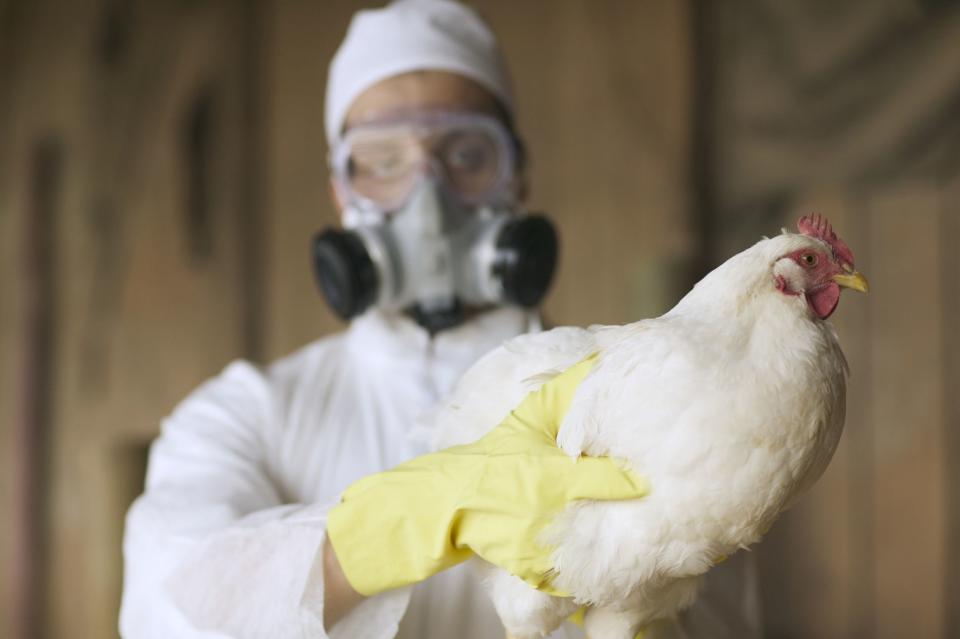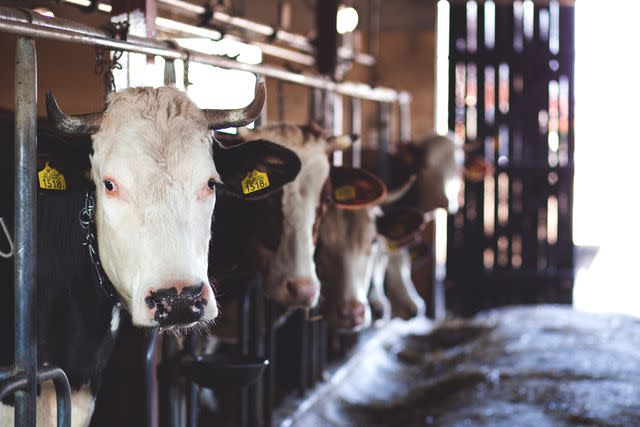First Human Dies from New Bird Flu Strain, World Health Organization Confirms
A 59-year-old resident of Mexico died April 24 from the H5N2 strain of bird flu

Peter Garrard Beck / Getty Images
Bird fluThe World Health Organization has confirmed the first person in Mexico to die from the bird flu (highly pathogenic avian influenza, HPAI).
The 59-year-old died April 24 after being hospitalized in Mexico City. The victim reportedly had multiple underlying medical conditions and was bedridden for three weeks prior to developing a fever, shortness of breath, diarrhea and nausea on April 17.
WHO said in a release that it’s not clear how the individual became infected as they had no history of exposure to poultry or other animals. However, the virus has been found in poultry in Mexico.
This is the first laboratory-confirmed human infection of the H5N2 strain of bird flu. Scientists said this case is unrelated to the outbreak of H5N1 strain of bird flu in the United States, which has reportedly infected three dairy farm workers so far.
Additionally, the UN agency said that the current risk to the general population in Mexico remains low.
Never miss a story — sign up for PEOPLE's free daily newsletter to stay up-to-date on the best of what PEOPLE has to offer, from celebrity news to compelling human interest stories.

Getty Images
Related: World Health Organization Expresses 'Enormous Concern' About Bird Flu Spreading to Humans
In April, WHO expressed “enormous concern” about the spread of the bird flu.
Dr. Jeremy Farrar — WHO’s chief scientist — said the current outbreak, which began in 2020 and reached the United States in 2022, is a “significant public health concern” as infections have spread among mammals, stressing that there is an “extremely high” mortality rate in humans.
“H5N1 is (an) influenza infection, predominantly started in poultry and ducks and has spread effectively over the course of the last one or two years to become a global zoonotic – animal – pandemic,” he said, according to a United Nations report.
“The great concern, of course, is that in doing so and infecting ducks and chickens — but now increasingly mammals — that virus now evolves and develops the ability to infect humans,” he added. “And then critically, the ability to go from human-to-human transmission.”

freestocks.org/Pexels
The PEOPLE Puzzler crossword is here! How quickly can you solve it? Play now!
Back in April 2022, the United States reported its first human case of bird flu after an inmate at a Colorado prison contracted the virus after direct exposure to infected poultry.
In March 2024, a Texas resident contracted the bird flu after direct exposure to infected dairy cattle. At the time, the U.S. Department of Agriculture's Animal and Plant Health Inspection Service confirmed that the virus was detected in cows in Texas, Kansas, Michigan, New Mexico and Idaho, revealing that the virus may be spread between cattle.
The USDA, FDA and CDC said there is currently no concern about the safety of the commercial milk supply, vowing to monitor the affected cattle and unpasteurized milk samples.
According to experts, infected birds shed flu viruses in their saliva, mucous, and feces. The HPAI has been found in commercial and backyard farms in 48 states, the U.S. Department of Agriculture reports.
For more People news, make sure to sign up for our newsletter!
Read the original article on People.


